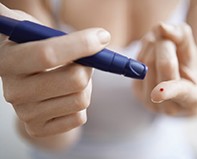Peer Reviewed
Perspectives
Lack of hypoglycaemia awareness in diabetes: why it matters in clinical care
Abstract
In people with diabetes and hypoglycaemia unawareness the counter-regulatory hormone response to hypoglycaemia is impaired and the early adrenergic signs of hypoglycaemia are absent. This article describes the diagnosis, causes, clinical impact and complications of hypoglycaemia unawareness and discusses management strategies.
Key Points
- In patients with diabetes and hypoglycaemia unawareness the adrenergic response to hypoglycaemia (anxiety, trembling and sweatiness) may be absent and the first symptoms may relate to neuroglycopenia (poor concentration, headache, slurred speech, emotional lability, coma and seizures).
- Patients with type 1 or type 2 diabetes can have hypoglycaemia unawareness and are at increased risk of severe hypoglycaemia.
- Hypoglycaemia unawareness is more common in people with diabetes with frequent antecedent hypoglycaemia and those with a longer duration of diabetes.
- Hypoglycaemia awareness can be improved by avoidance of hypoglycaemia over several weeks or months.
Picture credit: © Shutterstock/Bikeriderlondon.
Purchase the PDF version of this article
Already a subscriber? Login here.

